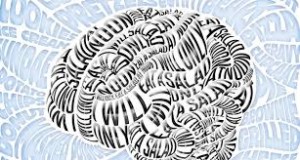 Binge Eating Disorder is less common but much more severe than overeating. Binge Eating Disorder is associated with more subjective distress regarding the eating behavior, and commonly other co-occurring psychological problems. Intense guilt and shame envelop persons suffering with this disorder and often lead them towards diets offering quick fixes versus longer term treatment of the disorder.
Binge Eating Disorder is less common but much more severe than overeating. Binge Eating Disorder is associated with more subjective distress regarding the eating behavior, and commonly other co-occurring psychological problems. Intense guilt and shame envelop persons suffering with this disorder and often lead them towards diets offering quick fixes versus longer term treatment of the disorder.
According to the DSM-5 criteria, to be diagnosed as having Binge Eating Disorder a person must display:
- Recurrent episodes of binge eating. An episode of binge eating is characterised by both of the following:
- Eating, in a discrete period of time (e.g. within any 2-hour period), an amount of food that is definitely larger than most people would eat during a similar period of time and under similar circumstances.
- A sense of lack of control over eating during the episode (e.g. a feeling that one cannot stop eating or control what or how much one is eating).
- The binge eating episodes are associated with three or more of the following:
- eating much more rapidly than normal
- eating until feeling uncomfortably full
- eating large amounts of food when not feeling physically hungry
- eating alone because of feeling embarrassed by how much one is eating
- feeling disgusted with oneself, depressed or very guilty afterward
- Marked distress regarding binge eating is present
- Binge eating occurs, on average, at least once a week for three months
- Binge eating not associated with the recurrent use of inappropriate compensatory behaviors as in Bulimia Nervosa and does not occur exclusively during the course of Bulimia Nervosa, or Anorexia Nervosa methods to compensate for overeating, such as self-induced vomiting.
Warning Signs
- Evidence of binge eating, including disappearance of large amounts of food in short periods of time or finding wrappers and containers indicating the consumption of large amounts of food.
- Unusual swelling of the cheeks or jaw area.
- Creation of lifestyle schedules or rituals to make time for binge sessions.
- Withdrawal from usual friends and activities.
- In general, behaviors and attitudes indicating that weight loss, dieting, and control of food are becoming primary concerns.
Medical Complications
- Acid Reflux
- Digestive difficulties
- Edema (Swelling of soft tissues resulting from excess water accumulation from laxative or diuretic abuse)
- Gastrointestinal complaints (cramps, bloating, constipation, diarrhea, incontinence)
- Hypo- and Hyperglycemia (low/high blood sugar)
- Hyponatremia (low sodium)
- Kidney infection and failure
- Low blood pressure or hypotension
- Malnutrition
- Pancreatitis
- Parotid gland swelling
- Sleep problems
- Weakness and fatigue
Often, but not always, individuals with eating disorders have other symptoms and problem that are not part of the diagnostic criteria for their eating disorder. It isn’t uncommon to see in binge eating disorder symptoms such as:
- Self-cutting
- Self-harming behaviors
- Body Dysmorphic Disorder
- Personality disorders
- OCD (Obsessive Compulsive Disorder)
- Substance abuse disorders
Treatment
No single approach to eating disorder treatment will work equally for everyone. The right method of treatment depends on an individual’s strengths, goals and the nature of their eating disorder. If you or someone you know is suffering from binge eating, the first step is to talk about the problem and seek the guidance of an eating disorder therapist and medical professional as soon as possible.
While researching possible treatments, keep the following in mind:
- Treatment often involves a combination of psychotherapy, nutritional counseling, medical and psychiatric management.
- Treatment can take place in an outpatient, partial or day treatment program or 24-hour setting, i.e. residential or hospital setting.
- Treatment can be enhanced by the involvement and participation of family/friends.
- Treatment can be enhanced with the use of recovered professionals or mentors.
- Treatment may require hospitalization, depending upon the severity of the problem.
With any treatment plan it is important to explore the behavioral symptoms and any underlying issues that may have caused or serve to perpetuate the eating disorder. Research supports that individuals with eating disorders can become fully recovered.
